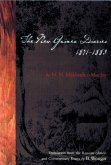In "Letters of Edward FitzGerald to Fanny Kemble (1871-1883)", the esteemed Victorian poet and translator showcases a revealing correspondence that unfolds the intimate dynamics between two eminent figures of their time. Characterized by FitzGerald's exquisite prose, this collection melds personal sentiment with keen literary insight, illuminating not only their friendship but also the cultural milieu of 19th-century England. The letters reflect a blend of wit, nostalgia, and philosophical musings, offering a rich tapestry that captures the essence of their conversations and the societal issues they navigated together. Edward FitzGerald, renowned for his translation of the Persian poet Omar Khayyam, cultivated a literary career steeped in intellectual curiosity and emotional depth. His relationship with Fanny Kemble, a celebrated actress and writer, exerts a profound influence on his thoughts, as both grappled with their respective arts while immersing themselves in the Victorian world. This correspondence reveals FitzGerald's contemplative nature, as he articulates his perspectives on literature, society, and the ephemeral nature of life. For readers seeking an authentic glimpse into the lives and thoughts of literary giants, this collection is an indispensable treasure. The gripping exchange not only captivates with its eloquence but also serves as a poignant reminder of the timeless human experience, making it a worthy addition to any literary collection.
Dieser Download kann aus rechtlichen Gründen nur mit Rechnungsadresse in A, B, BG, CY, CZ, D, DK, EW, E, FIN, F, GR, H, IRL, I, LT, L, LR, M, NL, PL, P, R, S, SLO, SK ausgeliefert werden.









